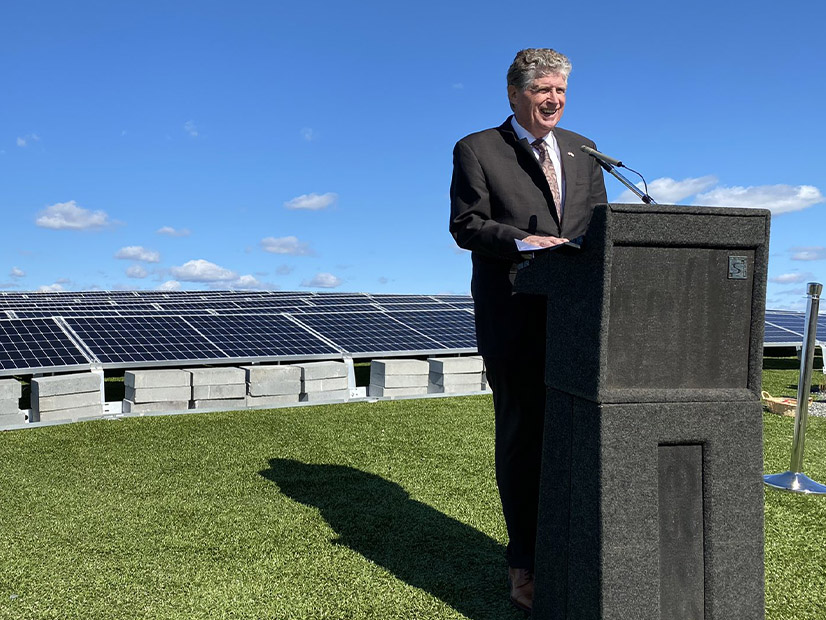
The Rhode Island House of Representatives passed a bill 56-13 Tuesday that would amend the state’s Renewable Energy Standard to require 100% of electricity to come from renewable sources by 2033.
The Senate passed the bill (S2274/H7277) May 31 with an amendment that removed language allowing regulators to delay interim compliance dates based on renewables’ availability. A Republican-sponsored amendment to reinstate that language failed in the House Tuesday.
Current state legislation sets the annual increase in renewable energy that utilities must procure at 1.5%, to reach 38.5% by 2035. The new standard raises those interim amounts, starting with a 4% increase next year and reaching a 9.5% increase in 2032 and 2033 to total 100%. Utilities will be able to demonstrate compliance through the purchase of renewable energy certificates.
Rep. Patricia Morgan (R) called the renewable energy goal in the bill “aggressive,” saying “it will lead to energy poverty for the people of Rhode Island.”
Environmental advocates expect Democratic Gov. Dan McKee to sign the bill.
“Rhode Island’s ambitious timeline puts it at the head of the table with America’s top clean energy states,” Johanna Neumann, senior director of the Research and Policy Center at Environment America, said in a statement. “Rhode Island committing to 100% renewable energy faster than any state to date marks a milestone in America’s journey toward a future powered by clean energy.”
Nine states have a 100% RES in place, with target dates ranging from 2040 to 2050.
Supporters of the goal to increase the RES are also watching the status of another bill backed by McKee that would require Rhode Island Energy (NYSE:PPL) to issue a request for proposals for up to 600 MW of offshore wind by Aug. 15. The Senate passed the bill (S2583) June 7, and it is now before the House Corporations Committee.
“We are making great progress toward this goal of 100% with many offshore wind projects in Rhode Island and Massachusetts,” said Rep. Deborah Ruggiero (D), sponsor of H7277. “This doesn’t mean we won’t have any dependence on gas and oil, but this will make us much less dependent on fossil fuel and more reliant on renewables, to move us toward a resilient future.”


